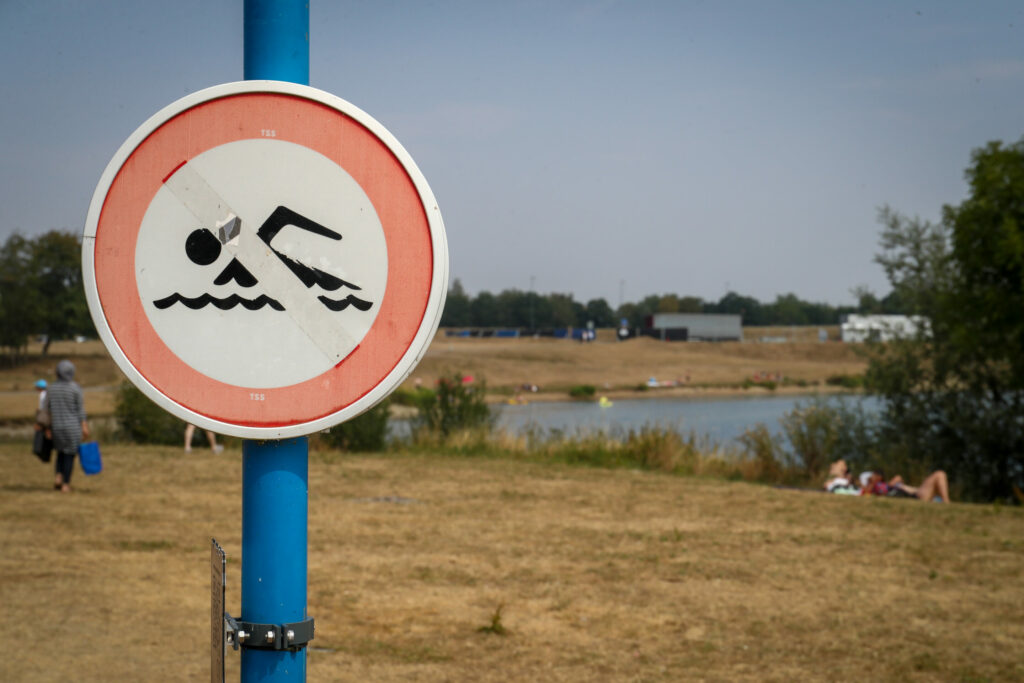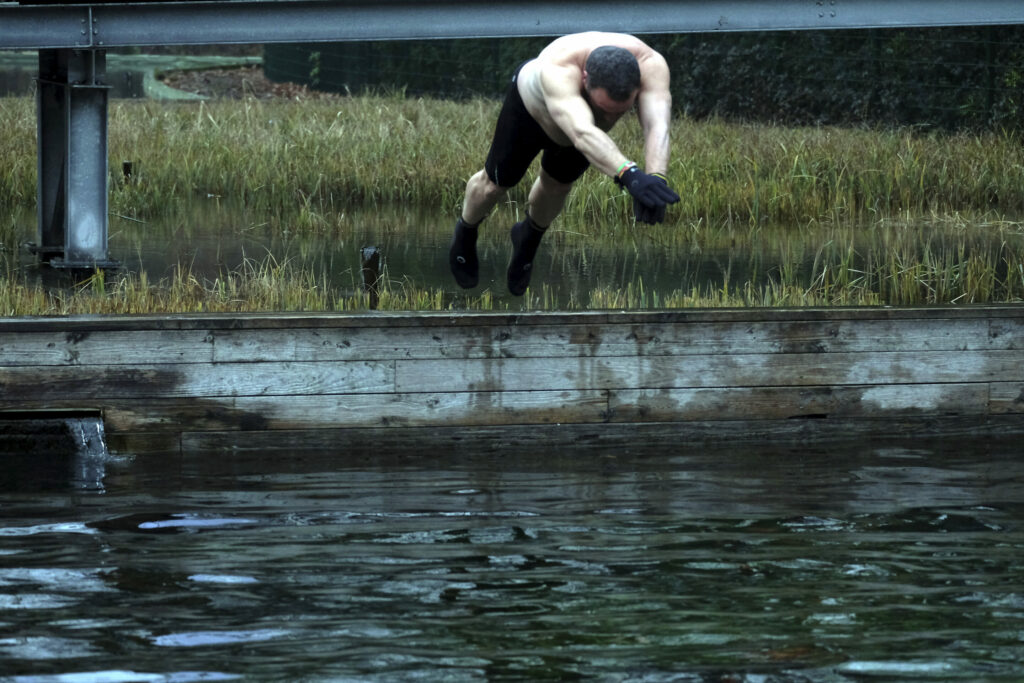After years of campaigning by various interest groups, the Flemish government on Friday finally approved more lenient regulations, giving local authorities more power to create open-air swimming sites.
The number of locations where people can swim out in the open has increased by 14% since 2020 to around 100 sites. But this remains limited compared to the number of ponds, watercourses and lakes. For years, there have been calls to allow people to take a refreshing dip at more sites, and the Flemish government has finally approved regulations that will make this possible.
Flemish Environment Minister Zuhal Demir explained that the requirements to become a recognised swimming zone have been simplified. This lowers the thresholds for additional swimming spots and allows local municipalities to create new spaces.
The decision follows a proposal submitted by Flemish MP (Open Vld) and councillor in Kampenhout Gwenny De Vroe who wanted to create new bathing spots in her municipality but came up against strict rules.

Councils have currently had to adhere to a long list of criteria in order to allow public to swim in bodies of water. Credit: Belga / Virginie Lefour
"Being able to swim in the open air, in nature, is pure freedom," De Vroe said. "By addressing the strict rules, soon many more people will be able to enjoy their freedom and our beautiful nature."
In the coming weeks, the Department of the Environment and the Flemish Environment Agency (VMM) will inform local administrations of what the changes mean, and by the end of March, local authorities can register the sites they want to turn into recognised swimming zones.
Removing red tape without sacrificing safety
The new rules do away with the current stipulations that there must be fire extinguishers, evacuation routes, shower cubicles and other sanitary facilities. It also removes the surface criteria (that the "floor" must be covered with sand and maximum gradient).
It also includes an adaptation to the environmental policy legislation (VLAREM) introducing a new category of bathing water, titled the "free swimming zone". For the first time, this gives local authorities the power to provide additional sites on their territory in the easiest way possible.
The council has to submit a test of the water quality, a permit from the owner/manager and a risk assessment that the Health and Care agency approves. Demir stressed that the changes will not come at the cost of safety.
Related News
- Brussels' open-air pool shortlisted for international prize
- Brussels to have new natural swimming pond from 2026
- Take the plunge: Winter swim season begins at Brussels' open-air swimming pool
Demir noted that a complete deregulation as is in place in the Netherlands – which would mean swimming is allowed everywhere in Flanders at your own risk. This is something that various groups have called for but Demir has ruled out.
Despite commitments to further improve the water quality of our rivers and streams, general water quality is not good enough to allow swimming everywhere. "In addition, swimming or diving off bridges or locks can also be dangerous. Concrete structures on the bottom can cause injuries or large temperature differences can lead to a cold snap," Demir said. "We are opting to keep a risk assessment in place whilst removing unnecessary rules."

